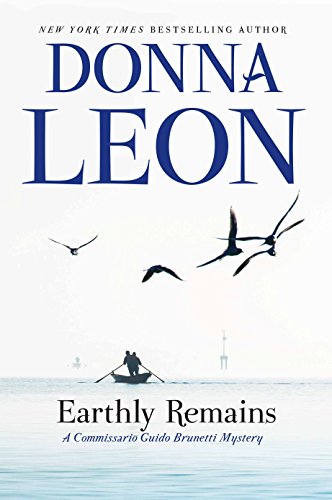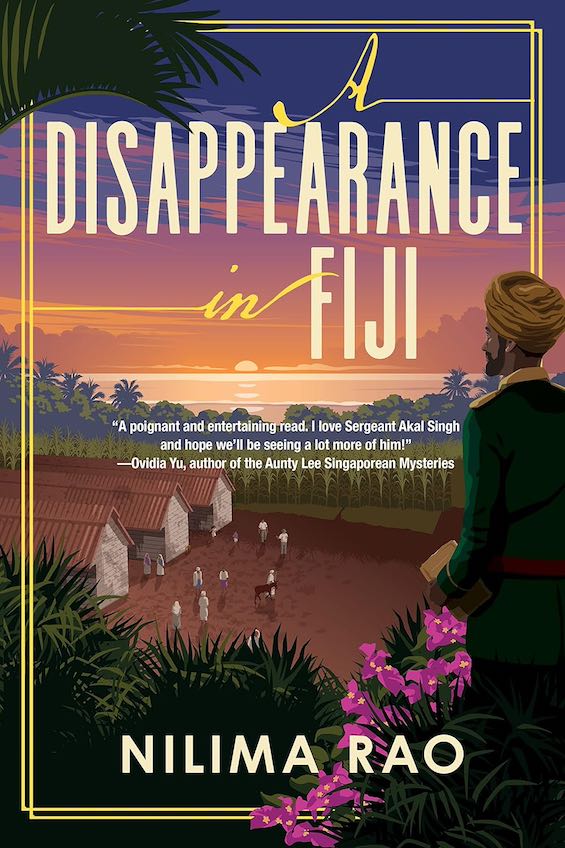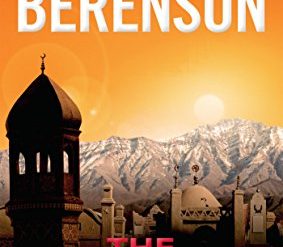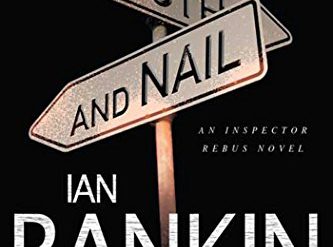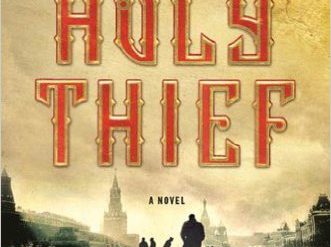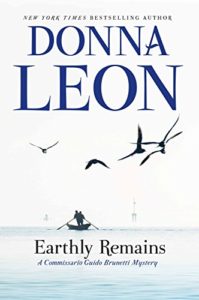
For some reason I cannot fathom, Marilyn Stasio raved about Earthly Remains. Stasio has been editing a column on crime fiction for the New York Times Book Review—forever, it seems. Her recommendations are often good. But this one wasn’t. She called this novel, the 26th in Donna Leon’s long-running Commissario Brunetti series, “one of her best.” I don’t agree. Earthly Remains is definitely not one of her best.
Estimated reading time: 3 minutes
Though there is a mystery underlying the action in Earthly Remains, it doesn’t even begin to surface until one-third of the way into the novel. And the investigation undertaken by Commissario Brunetti isn’t undertaken in earnest until more than two-thirds of the way.
Definitely not one of her best: not a lot happens in this novel
Many of Leon’s signature themes are prominent in this curious book. She rhapsodizes about Venice, the surrounding communities, and the Laguna Veneta, the extension of the Adriatic Sea on which the islands of the city are located. In Earthly Remains, the romance of the Laguna comes in for special praise. Predictably, too, the corruption rampant in Italian society emerges clearly in the story. Brunetti’s boss, Vice-Questore Patta, is, as always, obsequious with authority and disdainful of those who report to him. If anyone in a position of power in Venice is under investigation by Brunetti or his colleagues, Patta will surely intervene in the suspect’s favor. And, once the plot of the novel finally becomes clear, Leon spotlights the illegal activity that has helped to poison the Laguna and surrounding territory. In Donna Leon’s Italy, corruption engulfs business as well as government, the police, and the Church.
Earthly Remains (Commissario Brunetti #26) by Donna Leon ★★★☆☆
One of Leon’s bad writing habits is to describe action in excruciating detail. I have no idea whether she picked up the habit writing for magazines that pay by the word, but Earthly Remains and many of her other novels read that way. Here’s a representative example from one of the first pages in the novel:
“Brunetti had apologized for the heat in the room, explaining that the ongoing heatwave had forced the Questura to choose between using its reduced supply of energy for the computers or for air conditioning and had chosen the former. Ruggieri had been gracious and had said only that he’d remove his jacket if he might. Brunetti, who kept his jacket on, had begun by making it amply clear . . .”
That was 68 words. How many words do you think Elmore Leonard might have used to convey the essential information in that passage? In fact, is there any essential information there?
If you are a die-hard Donna Leon fan, you might want to read Earthly Remains. If you’re not, be forewarned: not a lot happens in this novel. It’s very slow going.
For related reading
You might also enjoy my posts:
- Top 10 mystery and thriller series
- 20 excellent standalone mysteries and thrillers
- 30 outstanding detective series from around the world
- Top 20 suspenseful detective novels
- Top 10 historical mysteries and thrillers
And you can always find my most popular reviews, and the most recent ones, on the Home Page.

